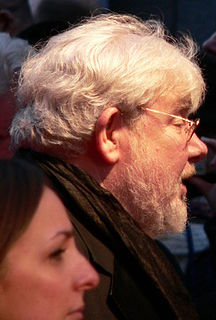A Quote by Sara Coleridge
The desire to be the object of public attention is weak, but the excessive dread of it is but a form of vanity and over-self-contemplativeness.
Related Quotes
Well, think of what I’m doing to you right now. For me I’m the self, and you’re the object. For you, of course, it’s the exact opposite—you’re the self to you and I’m the object. And by exchanging self and object, we can project ourselves onto the other and gain self-consciousness. Volitionally.” “I still don’t get it, but it sure feels good.” “That’s the whole idea,” the girl said.
The weak are not a noble breed. Their sublime deeds of faith, daring, and self-sacrifice usually spring from questionable motives. The weak hate not wickedness but weakness; and one instance of their hatred of weakness is hatred of self. All the passionate pursuits of the weak are in some degree a striving to escape, blur, or disguise an unwanted self. It is a striving shot through with malice, envy, self-deception, and a host of petty impulses; yet it often culminates in superb achievements.
Obesity is the result of a loss of self-control. Indeed, loss of self-control might be said to be the defining social (or anti-social) characteristic of our age: public drunkenness, excessive gambling, promiscuity and common-or-garden rudeness are all examples of our collective loss of self-control.
Man's desire for the approval of his fellows is so strong, his dread of their censure so violent, that he himself has brought his enemy (conscience) within his gates; and it keeps watch over him, vigilant always in the interests of its master to crush any half-formed desire to break away from the herd.


































